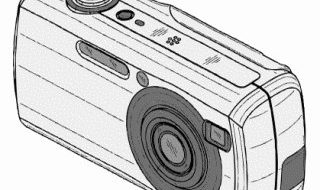One of the first things many salespersons will suggest when you purchase a new camera or other piece of electronics is that you also purchase an extended warranty. Should you? Like most things, it isn’t all that cut & dried & you will find strong opinions both ways.
The first thing to understand is that extended warranties are designed to make money for the vendor, not to protect the consumer. If the vendor of the extended warranty doesn’t collect more money than they pay out, they will go out of business. Extended warranties are really a form of insurance. Like most insurance, extended warranties should be used to cover the replacement for something that you can’t afford to replace on your own. Of course there will always be cases where an individual consumer makes good use of an extended warranty and will point out how it saved them money, but for everyone of them there will be many more that bought one and never made use of it. Likewise, there will always be someone that didn’t purchase the extended warranty and had a device fail the day after the manufacturer’s warranty ran out. Still, if you can afford to replace the camera you will save money in the long run by skipping the extended warranty.
Some other points to consider:
- If you use a credit card it may double the manufacturer’s warranty period, making a purchased warranty unnecessary.
- Take the time to go through the paperwork that comes with the camera. Some manufacturers double or more the warranty period if you register the device. For example, Nikkor lenses have a 1 year manufacturer’s warranty. If you register the lens with Nikon, they extend the coverage to 5 years.
- The majority of failures of electronic devices will take place during the manufacturer’s warranty. If a piece of equipment makes it through the first couple of months of use, it is likely to keep working for the length of most extended warranties. If a manufacturing problem that affects many cameras is discovered after the manufacturer’s warranty runs out most manufacturers will often repair or replace the camera. Most of these repairs or replacements are not advertised – if your camera stops working always contact the manufacturer, even if it is out of the warranty period.
- Most extended warranties do not cover damage due to accident, loss, misuse, tampering or improper care – the primary reasons most cameras fail. Be sure to read the warranty contract to see what is included in the coverage. If it isn’t listed as covered, it probably isn’t. Look for exclusions – Often lenses and/or LCDs are not covered.
- Because digital cameras improve a great deal with each generation, and there is usually less than a year between generations, you may find you would rather purchase a new camera than having an older one repaired.
- Along the same lines, once you start using a digital camera you may find your skill and interest levels increase to the point where you wish to purchase a more advanced system, for example, moving up to a digital single lens reflex (DSLR) long before your extended warranty expires.
- Check with your home owners or RV insurance agent – they may offer additional coverage for your cameras & other electronic equipment for less than the cost of an extended warranty and that coverage could cover all your equipment, not just one item. Again, be sure you & your agent understand what is covered & what is not.
Using myself as an example, over the past 15 years I have purchased 8 digital cameras, none with extended warranties. Three of the eight cameras went back to the manufacturer for repairs during the original warranty period – none needed to be returned during the period that would have been covered by an extended warranty. I did have to return a laptop for repairs outside the manufacturer’s warranty period, but it was because I managed to spill coffee into the keyboard – something an extended warranty would not have covered.
So, although this is just one person’s opinion, my suggestion is to skip the extended warranty on any item you can afford to replace. If you can’t afford to replace the item, be sure the extended warranty you purchase actually covers what is likely to happen to the equipment.


Marc
The older cameras never broke down. The pocket digital ones always break after one year. I finally decided to buy coverage for $40 from http://www.northamericacoverage.com and i’m sure i’ll be using it. Money well spent.
Alpenliter
I sold consumer electronics for 30 years. during that time I found more and more emphasis was placed on extended warrantees than on product knowledge and training from management. Then quotas came in, where if you didn’t sell an extended warranty on 3 out of 10 sales, you were out of a job. When I found myself spending more time on the warranty sale than on the product, I left the business.
Bob Smith
I told the salesman that if the product was so bad I needed extra waranty for his product I didn’t need his item. Made hiom mad. so what. I BOUGHT EXTENDED WARRANTY ON MY RV AND THEN FOUND OUT THE ONLY PEOPLE TAHT COULD FIX IT WAS THE DEALER i BOUGHT IT FROM. bIG RIP OFF i NEEDED WORK 800 MILES FROM HOME no more extended warranty for me except from maby ford or gmc company.
Tireman9
Great observations on who makes the money. I looked into Extended Warranty for my new RV and decided against both. One wouldn’t cover any wireing, or plumbing and I am certain that many problems are caused by some wireing or plumbing failure. The other wouldn’t pay until the unit completely failed. So if the generator started acting up they wouldn’t pay as long as it ran at all. I can see that if I waited long enough I would probably be out of the time of warranty coverage.